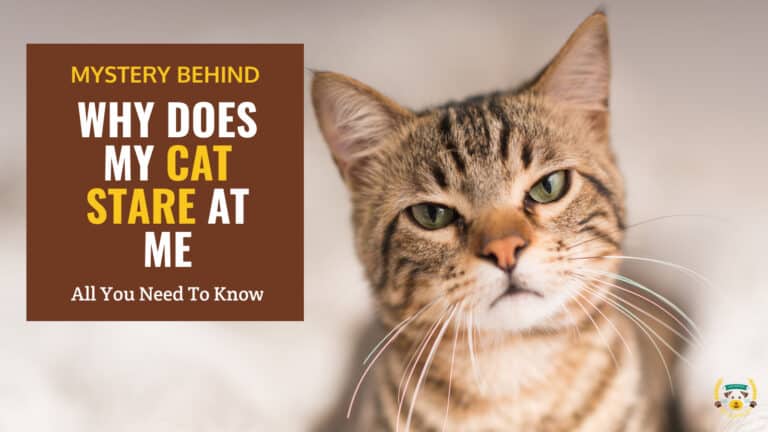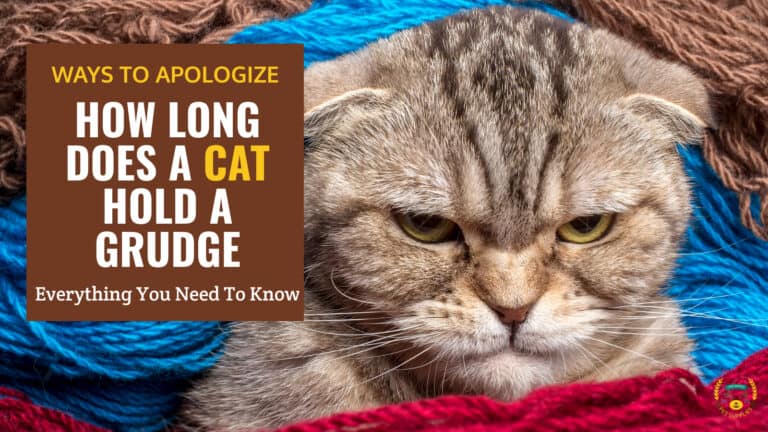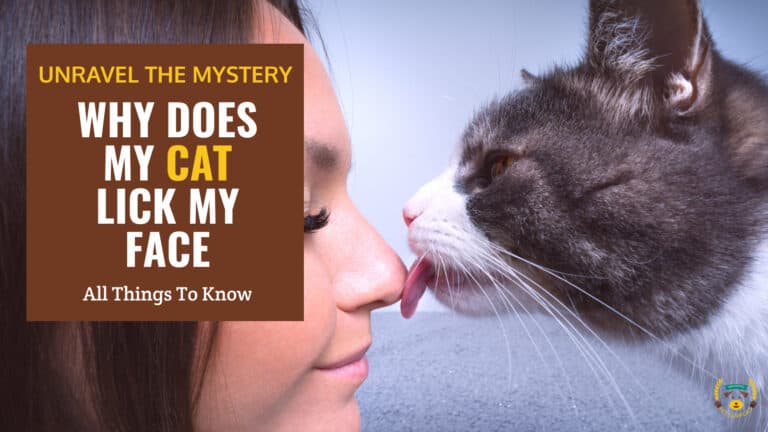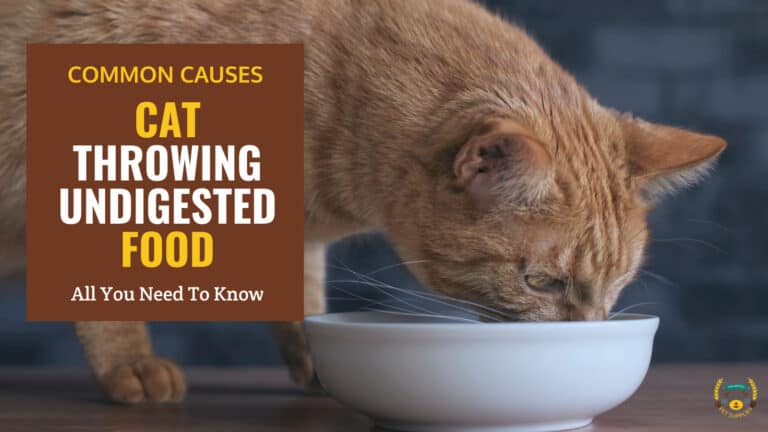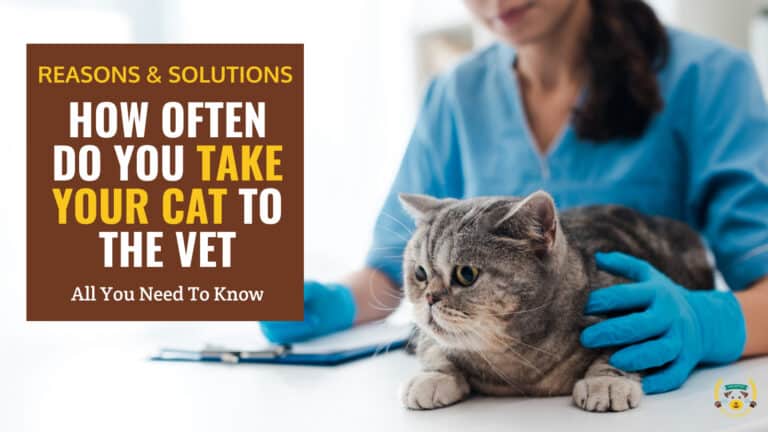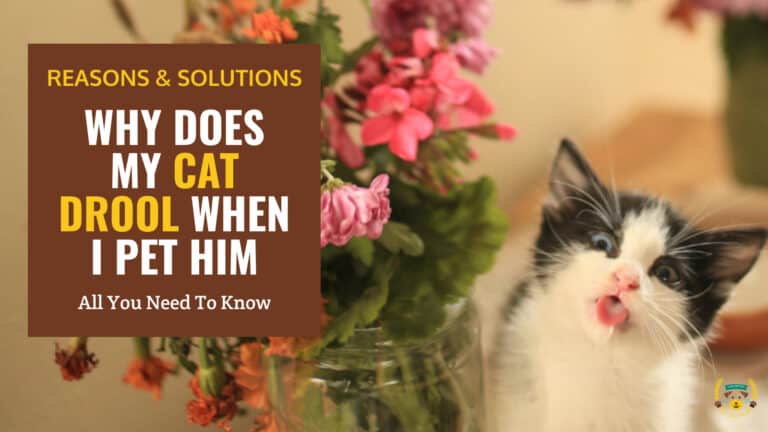Why Is My Cat Pooping on The Floor?
Last updated: February 12, 2024
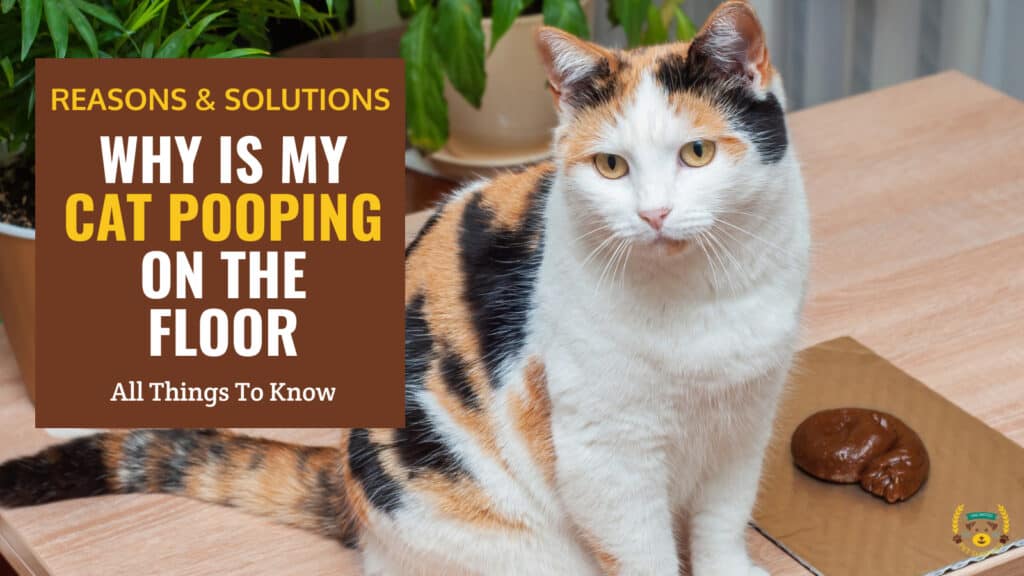
Summary
- Cats pooping outside the litter box: medical or behavioral causes
- Medical: UTI, arthritis, etc. make litter box use uncomfortable
- Behavioral: stress, anxiety, litter box dislike, environment changes
- Solutions: vet check, litter box adjustments, stress reduction, enrichment, cleaning
- Prevention: monitor, reward good use, minimize stress, avoid changes, offer multiple boxes
Have you noticed your feline companion leaving smelly "presents" around the house lately? This frustrating and confusing behavior often leaves cat owners wondering - is Spotty pooping on the floor out of spite or revenge? But what if there's more to it than that? Recent changes in bathroom habits could actually be your cat's way of communicating an underlying issue.
This article explores the mystery behind cats who have suddenly abandoned their litter boxes in favor of the floor. Through an insightful analysis of cat behavior and health, it aims to help you better understand the meaning behind this undesirable and distressing habit.
You'll discover the crucial reasons why cats poop outside their litter box, how to tell if it's a medical concern, and most importantly, easy solutions to restore harmony in your home.
- 1) Health and Behavioral Causes of Inappropriate Elimination
- 2) Impacts of Inappropriate Elimination for Cats and Owners
- 3) Understanding Common Causes of Inappropriate Elimination
- 4) Solutions and Treatments for Inappropriate Cat Elimination
- 5) Preventing Recurrences of Inappropriate Elimination
- 6) Frequently Asked Questions
- 7) Final Thoughts
Health and Behavioral Causes of Inappropriate Elimination
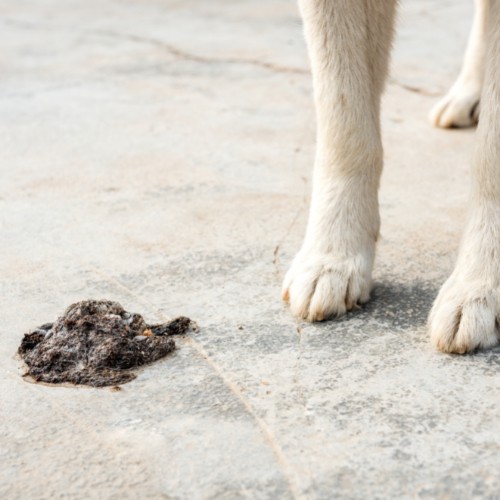
Medical conditions like urinary tract infections, arthritis, dementia, and other issues can prevent litter box use and trigger incidents.
In addition, stress, territorial anxiety, introduction of new pets, litter box aversions, and changes to home environments are also common behavioral triggers. Determining the underlying cause is crucial for proper treatment.
Impacts of Inappropriate Elimination for Cats and Owners
For cats, inappropriate elimination causes heightened stress and risks to health if underlying illnesses go untreated. Cat owners face messes requiring extensive cleaning, potential property damage, and strained bonds with their furry companions. Learning prevention and correction techniques bring relief to all.
Understanding Common Causes of Inappropriate Elimination
There are some common causes, both behavioral and medical, for why cats practice inappropriate elimination outside their litter boxes. Gaining deeper insight into these triggers is crucial for solving the issue in specific cases.
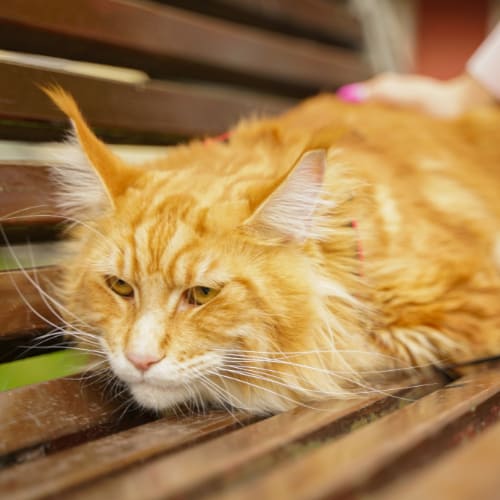
Medical Conditions Causing House Soiling
Various feline health issues can lead to incidents of urinating or defecating throughout the home. Conditions that cause discomfort, mobility difficulty, loss of control, and pain during elimination are particularly linked.
Some examples include the following:
- Urinary tract infections or bladder inflammation
- Kidney disease or renal failure
- Diabetes causing polyuria (excessive urination)
- Colitis, constipation, diarrhea, or inflammatory bowel disease
- Arthritis, joint pain or muscular disorders
Some cats show other unusual signs alongside inappropriate elimination, such as excessive drooling, which could also indicate underlying health issues.
In senior cats, feline cognitive dysfunction syndrome similar to Alzheimer’s can also spark inaccurate elimination. Diagnosing and managing health problems under a vet's care is the first step.
Stress and Anxiety Triggers
Even minor stressors like conflicts with other household pets, introduction of new people or animals, loud noises, change in feeding times, or owner absence can trigger litter box avoidance and stressed elimination incidents in more anxious cats prone to disrupted routines.
Aversion to Litter Box Design or Location
Factors that make a litter box uncomfortable, difficult to access, too exposed without privacy, or not kept clean enough for feline preferences can create avoidance and house-soiling behaviors as well.
Moreover, insufficient number of litter boxes for multi-cat homes may also contribute to the issue.
Changes and Disruptions in the Home Environment
Water bowl or food location changes, new furniture, children leaving for college, owner shift changes disrupting sleep and feeding routines, remodeling, visitors, and other environmental shifts can also leave some cats feeling stressed enough to mis-eliminate while adjusting.
For more information on how to establish a consistent feeding routine that can help reduce stress and anxiety in your cat, you can check out our article tailoring your cat's meals.
Solutions and Treatments for Inappropriate Cat Elimination
Armed with a clearer understanding of the potential triggers causing cats to poop outside their litter boxes, it's time to consider solutions and treatments that suit the specific cause in a given case. Coupling proper diagnosis and care sets the stage for effective prevention long-term.
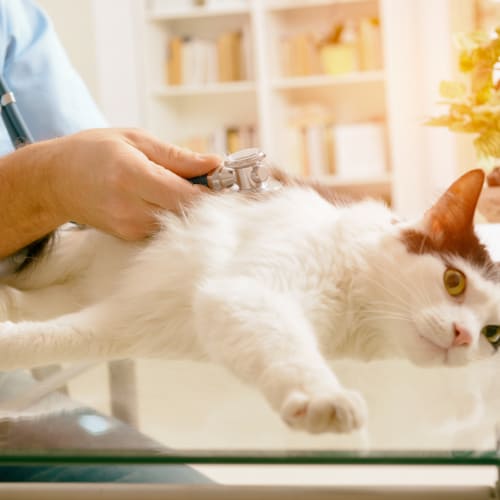
Veterinary Diagnosis and Care
For sudden inappropriate elimination, especially in senior cats, a full veterinary exam helps diagnose potential underlying illnesses and necessary medical care.
For instance, Urinalysis, blood work, parasitic screening, and other testing may be needed. Medications can ease issues like FLUTD inflammation, diarrhea or arthritis discomfort causing avoidance of the litter box location.
Maintaining your cat's health through regular veterinary checkups is crucial for preventing and identifying potential medical issues that might contribute to inappropriate elimination.
Understanding how often these checkups should occur can be tricky, as it depends on your cat's age, health status, and breed. To learn more about recommended vet visit frequency based on these factors, check out our informative article on how often do you take your cat to the vet.
Modifying Litter Box Type, Location and Cleaning
Litter boxes should be large enough for the cat to move around, located in quiet, low-traffic areas, contain preferred litter material, and feature regular cleaning maintenance.
Trying different litters, box styles, privacy configurations, positioning, automatic cleaning models, and more can reveal and accommodate fussy feline preferences.
Using Pheromones and Medications to Reduce Stress
For anxious cats or multi-cat tension, synthetic pheromone sprays/diffusers and supplements like Zylkene provide calming effects without sedation.
In extreme cases, anti-anxiety medication prescriptions help stabilize cats during major environmental changes. These ease transition while prevention tactics take hold.
Environmental Enrichment and Routine
Enrichment through vertical space, cat trees, play sessions, food puzzles, and maintaining consistent routines gives cats a positive outlet for instincts and energy while building confidence and bonding. This relieves stress and forms healthy litter box habits.
Cleaning and Neutralizing Affected Areas
Thoroughly cleaning soiled areas removes scent triggers that can draw repeat elimination. Cat-safe enzymatic cleaners fully neutralize odors, which is helpful for preventing recurrence once the original cause is addressed. You can restrict access to the area if needed during re-training.
Preventing Recurrences of Inappropriate Elimination
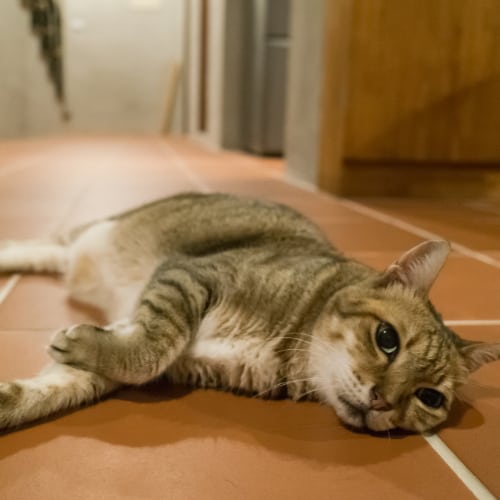
While addressing the root causes of inappropriate elimination is the first critical step, enacting prevention strategies helps ensure the undesirable behavior does not recur long-term. Let's go through some tactics you can use to reinforce good litter box habits once established and minimize future incidents.
Ongoing Observation and Reinforcement
Continue monitoring litter box use and access after the initial retraining, praising and rewarding cats when they use the box properly.
This positive reinforcement cements the preferred habit. Watch also for signs of recurrence like leaving the box mid-use, vocalizing pain, or resumed avoidance.
Creating Predictable, Low-Stress Environments
Try to minimize unpredictability and chaos within the home. Keep food, water, litter box locations, play times, and access to favored sleeping spots consistently stable.
Also, make gradual introductions to visitors or changes and allow ample hideouts and vertical territory for cats to retreat to. The more in control a cat feels over their domain, the less stress they'll experience.
Avoiding Triggers and Changes
Learn individual cats' sensitivities and avoid environmental changes that previously triggered incidents. For extra anxious cats, introduce adjustments incrementally when unavoidable. Feliway diffusers help stabilize fluctuating moods.
Providing Multiple, Easily Accessed Litter Box Options
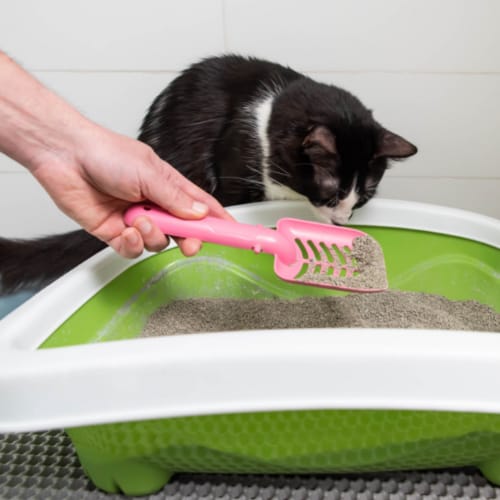
Have at least one litter box per cat, plus one extra, spread throughout the home for easy access. Adding types with and without lids, different litter substrates, boxes in quiet, low-traffic rooms, etc, provides options suited to each cat's preference and aversion-free access.
Frequently Asked Questions
The following are some widely asked questions to help you be as well-equipped as possible to remedy your cat's litter box issues.
Why did my cat suddenly start pooping on the floor?
Sudden inappropriate elimination often indicates a medical issue like UTI or arthritis causing discomfort. Schedule a veterinarian visit to diagnose and treat. Stress from changes at home like moving, visitors, construction, etc can also spark incidents.
How do I stop my cat pooping on the carpet?
There are many things you can do to stop your cat pooping on the carpet; coupled with medical treatment, overhaul the litter box setup - add more boxes in quiet spots, try different litters, clean frequently, use attractant sprays, restrict access to soiled carpet areas, and use enzymatic cleaners to remove odor triggers.
Why does my cat keep pooping right next to the litter box?
Pooping just beside the box signals an aversion to entering that particular box likely because it’s too small, dirty, public, or smells unpleasant from past accidents.
Getting a fresh, bigger, more private box with different litter may help resolve this proximity soiling.
How do I make my cat poop in the litter box again?
Here are a few tips to make your cat poop in the litter box again:
- Initially, restrict access except to the eating area.
- Scan for health issues.
- Switch boxes and litter types.
- Use treats to re-train entering the box.
- Clean accidents with enzymatic odor removers.
- Keep meals and litter box on a consistent schedule.
- Consider supplements like Feliway to reduce stress.
What does it mean if my cat poops on my bed?
Such inappropriate elimination is the cat version of "I'm mad at you!". Bed pooping demonstrates acting out towards owners, often when cats feel neglected, stressed by changes or in conflict with other household pets.
More play, affection, and environmental stability usually help fix this issue.
Final Thoughts
Inappropriate elimination outside the litter box is a common yet frustrating challenge faced by cat owners. When your furry friend starts peeing and pooping throughout your home territory, it causes understandable distress. However, rather than scolding your cat or giving up in despair, arm yourself with the insight and solutions detailed throughout this guide.
The first step is always scheduling a veterinary exam to rule out underlying illness for sudden incidents in senior cats or those with previous issues. If medical causes are ruled out, examine environmental stressors, litter box setup, multi-cat tensions, and other behavioral factors. Match treatments and prevention methods to the root cause of elimination problems in your individual case.
In addition to addressing these concerns, if you're a new cat owner or planning to adopt, it's important to prepare your home to be a comfortable environment for your new family member. Visit our guide on the checklist for adopting a cat to ensure you have all the essential items ready for their arrival.
We hope the tips provided here will help you get rid of this frustrating and annoying problem. If you have questions or comments, please contact us.

